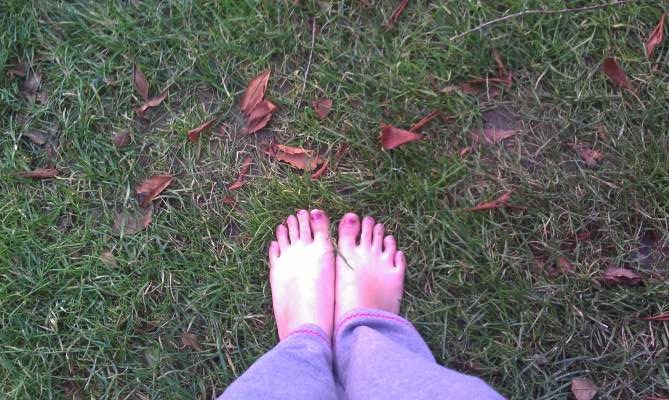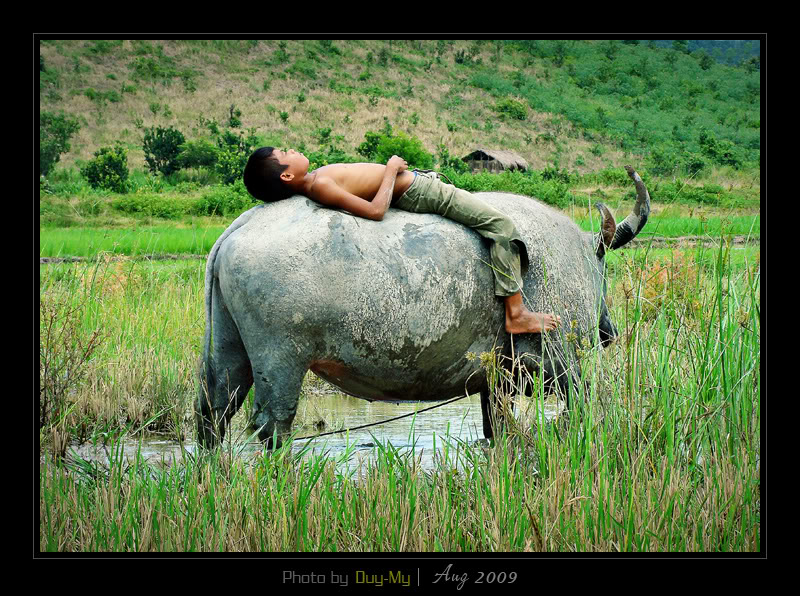Serendip is an independent site partnering with faculty at multiple colleges and universities around the world. Happy exploring!
mtran's blog
Rainy sunday morning
This morning I woke up without a slightest want to get up. Tangled in the bed, I checked weather forecast on my phone. 43F with rain… Oh I could hear the sound of the rain and could feel the freezing wind sneaking through the window. But well it not the right time to be a lazy cat though, I told myself. So with a cup of hot coffee, I visited my site, for the last time it was still a “site-sit”! In comparison with the first time I was there, the scene has obviously changed. Seasonal change. September weather was hot and the surrounding was lively and colorful. But today it is raining. No sun. Less green. Less colorful. The trees lost their leaves and the grass does not look very “happy.” But perhaps September next year when I come back to the place things will return to the beginning state when I got to know them. Or maybe not. Perhaps my perception and impression of nature is also influenced by my own feelings and my own thoughts? Next year when I come back, September was not the September the first year at college with all the excitement. I wonder what Rhoads will be like to me then? And even years after that?
Eco-Happiness
My dear freshman friends, final week is coming and stress seems to be unavoidable. Just like you, I have been buried in work, papers and exams. However, perhaps such busy schedules also signal the time for us to take a break in order to achieve full power for the fight. I am recommending one way to do so is to attend to nature. We all are lucky to be living in this wonderful green campus, so why don’t we just go out and experience a bit of ecological happiness? It is a precious state of the mind that needs to be maintained by protecting the environment.
A broader implication?
What has been on my mind about this novel is the implication when Coetzee mentions the mother’s aging and her son's consolation that “it will be over soon”. We said in class that it means either the heavy days they have been experiencing are going to an end or Elizabeth’s mortality will soon take her sufferrings away. Elizabeth Costello is approaching death and so she will not have to endure “the crime of stupefying proportions” - which has formed the basis of her lectures. I wonder what its broader implication might be, to use the image of an aging woman to prosecute the case for compassion as a core value. The first lecture ended with a strange closing remarks: “we can do anything and get away with it, that there is no punishment.” Might it suggest that Elizabeth’s mortal ache represents a broader premonition of our humanity’s extinction, prompted by humans' institutionalised anthropocentrism in the face of such tragedy?
The fog
It was a foggy Sunday morning. The fog actually began to envelop the campus since last night, I realized it as I was walking back from Park to my dorm. Fog wrapped everything with a coat of mysterious white. All that have been familiar to me on this campus suddenly became unfamiliar. Everything adopted an air of mystery. I could not see really far. Things only became familiar when I got closer to it. Walking along the road, any approaching tree seemed to be gradually revealing itself from behind a curtain, secretly and mysteriously, and ambiguously disappeared again as I walked pass it.
In the dark and foggy night, reality and unreality mixed. These two concepts are often approached in arts and literature as some kind of beauty that stimulates curiosity and admiration. But in nature, or in life, the unclear and mysterious seemed more frightening, at least to me... Or perhaps, there is no such thing as unreality, just my own fear of the unknown reality. Perhaps, unreality is just a presentation of possibilities, or even magic. Who knows what might emerge from our unpredictable nature ~
The Fog by William Henry Davies
"Half the sky"
So when I was revising the last paper, Anne suggested me to read this book, “Half the Sky: Turning Oppression into Opportunity for Women Worldwide” by Nicholas Kristof and Sheryl WuDuun, but I could not borrow the book from the library so I watched the DVD instead (both are available at Canaday.) For those who are interested in gender equity and feminism movement, this is definitely something worth watching. It is a touching documentary. A passionate call to arms against our era’s most pervasive human rights violation - the oppression of women and girls in the developing world. It was painful to watch. A vivid picture of women in different parts of the world as victims of culture, tradition, poverty, religion and most importantly mankind. It communicates its points with heartbreaking stories of women who have gone through tremendous cruelty just because they are simply women. It captures the mesmerizing eyes of hopelessness of these women. But there are also the heroes and the heroines who are engaging in changes, the women who passionately fight for their own rights and others who dedicate their life to offer a helping hand to the oppressed women. I was struck to realize that, all the heroes and the heroines that are changing the world are actually ordinary people living an ordinary life just like me and many other people. I was mesmerized by the question “What can I do??” because the documentary is so touching and motivating…
Geological and botanical tour
It has been a week since my botanical tour with Barbara, Claire and two others from 313. For me it was a good chance to revise what I have learned from our geological tour and also get to explore the campus from another viewpoint. From a geological point of view, we tend to examine the way people make use of nature to fulfill our needs. We use different types of rocks for different purposes; we look at how natural setting affects human construction… As we look from a botanical point of view, we also study about how elements of nature interact or relate to each other. What impressed me the most was the competition among plants. As I think of competition, I used to think of omnivores and the food chain. I rarely took notice of the competition for survival among plants. During our botanical tour, I learned that plants that live in the same area actually mimic each other’s appearance in order compete. Without tearing the leaves and smell the difference I would never think that two trees that look exactly the same could belong to totally different species. Competition also exists in the form of parasite: ivy climbs on a tree, depending on its nutrition to thrive and grow. The beautiful ivies turn out to be harmful to the growth of another plant.
Sauntering barefoot

My mind was filled with memories. I just talked to my childhood friend. Our friendship started since the carefree summers when we were playing on the rice field in the neighborhood everyday. It felt so good to immerse myself in nature, with grasshoppers, with wild flowers and with a good friend. So today I decided to reconnect with nature again, the way I used to do. Having put off my shoes, I started walking barefoot on the grass lawn behind Rhoads. It did not feel really comfortable at first, with the little itching and tickling feeling as grass touched my feet soles. That there might be something like an insect in the grass added to my reluctance. But as I kept on walking, and breathing in the fresh air, listening to the sounds of nature, I felt connected. Without shoes, I felt myself getting closer and closer to the earth, to the nature. Without a barrier between my skin and the ground, I felt more balance and control over myself, too. And my feet experienced more freedom. Walking barefoot with the cool and soft grass was like a massage, so refreshing and pleasant. The experience was very much different from those I had as a child playing with her friend, yet a physical contact with nature made me feel younger…
Women rights ~
http://www.businessweek.com/news/2012-11-07/women-winning-senate-races-will-set-record-in-january
I think this article is a good response to Marilyn Waring’s call for women to positions of power. So basically the feminist movement has been progressing positively. Not only can women now gain education and well-paid jobs but they are also take leadership roles to make changes. But the question is now whether this is just a short-term trend or it is the permanent equality we have reached, and how can we make sure that the rights women now have will not be taken all away again? Winona LaDuke has proposed “Seventh Generation Amendment” to protect the availability of natural resources for future generations, then perhaps there should also be another amendment to enhance the rights of women? Or are there already any?
In a warm sunday morning
Just came back from my old spot on a warm winter Sunday morning. It was good to see the sun again on the blue clear sky. In my mind I always associate sunshine with happiness and joy, I associate the shreds of sunshine on a row of trees with liveliness. But there is no such association today. Sunshine brightens up the space but cannot take away the sad shades of autumn on the falling leaves. Somehow, it makes me think of the end of the beginning. People say spring is time for a new beginning, when plants come to life after winter doldrums and grow and thrive in the summer. Then comes autumn when they begin the shred their leaves just to wait for long winter to go and the spring to come back to life. I cannot help feeling the sentimental.
And then I thought, if I were to draw a picture of this picturesque place, I would have a hard time trying to sketch out the patterns. There is actually hardly any pattern since nature is about randomness. Among the trees that are still green there are those that have turned yellow or those that have no more leaves, randomly. Among the trees that are so tall and big there are those much shorter or larger, randomly. Merely looking at this place I would say there is not class division here in nature. Unlike human society, I cannot point out which plant is of higher authority or which is oppressed. It does not seem like a bad thing to nature, because they all grow and thrive and will die some day…



